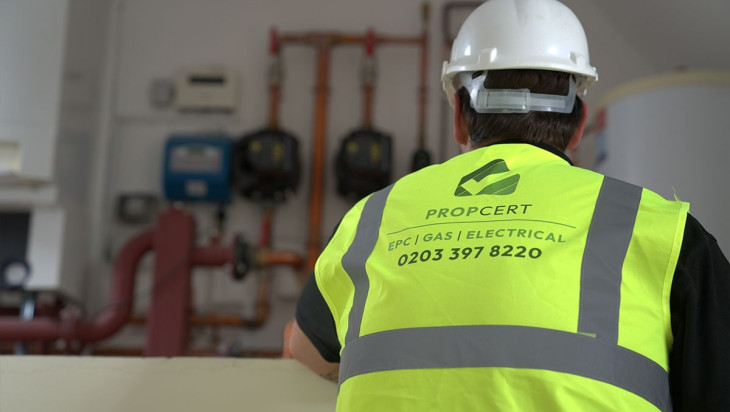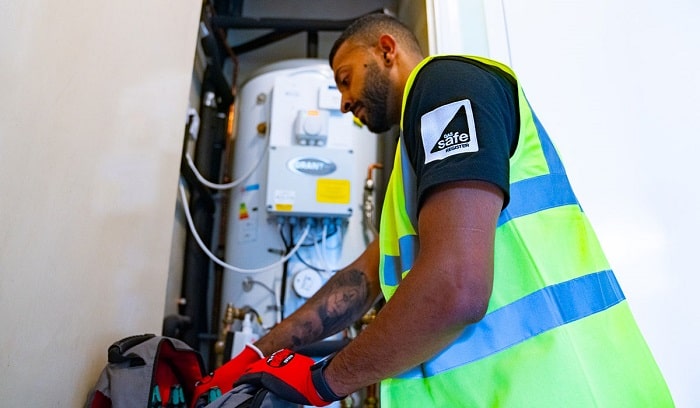
An uninterrupted supply of hot water in bathrooms and kitchens is critical, especially in the severe cold weather of the UK. While most households take it for granted that their boiler is efficient enough for this task, they might be caught by surprise when their shower suddenly starts delivering cold water. Although this may not be a very common scenario, it can happen at any time, and without any early warning.
Normally, it happens due to a malfunctioning boiler or another component of your home's hot water supply system. Sometimes, you may also find yourself in a peculiar situation, where hot water suddenly stops coming in but resumes after a while. It means there may be several reasons for the interruption in the hot water supply. So, it needs careful analysis of the causes and a quick, yet reasonable, solution to the actual problem.
This blog will guide you on the most common reasons behind this serious problem and offer easy solutions as well.

Before inspecting the boiler and its connected parts for faults, check the mixer valve to confirm it’s installed and operating correctly. If the shower mixer valve is working perfectly, it is time to check other possible reasons. Here are the 7 most common reasons hot water cools quickly, with easy solutions.
Older boiler systems are fitted with a hot water tank or hot water cylinder to store heated water. Hot water is supplied to the bathrooms and kitchens through this hot water tank. When the hot water contained in this tank is exhausted, the boiler starts heating the water again. Now, if there is more than one bathroom in your household, there is a good chance the hot water tank may not supply the hot water your household needs, especially if more than one person starts using hot water at once. An undersized hot water cylinder will result in the disruption of a continuous supply of hot water to all users. Normally, a 100-liter hot water tank may serve only one person. For a family of 3 to 4 persons, you may need a bigger water tank of around 150 to 200 liters.
In most of the UK homes these days, a combi boiler is installed. A combi boiler heats the water on demand, as per the requirements of the users. Since it does not have a hot water storage tank, hot water is directly supplied to the bathrooms and kitchens, which makes it highly critical that a properly sized combi boiler be installed. If the boiler is underpowered, it may not be able to maintain an uninterrupted hot water supply, especially during the peak usage hours. A small combi boiler of 24kW is usually sufficient for a small household living in a one-bedroom flat. However, for a large family having 2 to 3 bathrooms, this small boiler will never work correctly, especially when more than one bathroom is in use simultaneously.
A faulty thermostat often leads to inconsistent heating of the water. It may trip before reaching the desired temperature. Sometimes the thermostat may have been set to the wrong temperature. Usually, it should be adjusted to 60°C. All such happenings result in underheating of water.
Limescale buildup inside a boiler and Cylinder is a common problem in areas where hard water is supplied, such as London. Limescale may build up along the inner components of the boiler, such as the heating element and pipes. It directly affects heat transfer efficiency, resulting in instant cooling of the water. A hissing sound from your boiler might also indicate that it has built up a large amount of limescale.
A diverter valve is meant to control the flow of heat to either radiators or water taps. This valve is essentially installed in the Combi Boilers. There is every possibility that this valve may develop various faults, resulting in insufficient hot water supply to taps and showers in bathrooms and kitchens. If hot water in taps or showers instantly gets cold when you turn on the heating, it is a clear sign that the diverter valve has developed a fault.
Rust and sediment often accumulate inside the hot water tank in old conventional boilers. This situation directly affects the boiler's heating capacity, as it forms an insulating layer at the bottom of the tank, resulting in partial heating of the water.
Sometimes, the actual issue is neither the tank size nor the boiler rating; it might be in the boiler's internal components. These components might have worn out over time due to consistent use. Heat exchangers, sensors, and pumps are more likely to wear out over time. If there is an intermittent hot water supply or the boiler makes banging or whistling sounds, it suggests that some of the internal components of your boiler are faulty.
Boilers are installed in a home to heat rooms and supply hot water to taps and showers. The importance of a regular supply of hot water in bathrooms and the kitchen cannot be denied under any circumstances, especially during extremely cold weather. But often, the hot water suddenly turns cold, which is quite a terrible experience if you are caught right in the middle of a warm shower in the morning.
So, the consistent supply of hot water in your taps and showers is critically important. There might be multiple reasons behind this unwanted situation, ranging from a wrongly installed hot water mixer valve to a significant fault in the internal components of your boiler. A regularly serviced and well-maintained boiler may help protect you from such an unwanted situation.
Fill the required information to order a gas safety certificate instantly.
Are you curious about your Gas Safety Certificate? With these simple steps, learn how to check its status and ensure your peace of mind.
Find out why your boiler is vibrating loudly. Explore causes, troubleshooting tips, and the importance of prompt repairs for a quiet and efficient heating system at home.
Gas engineers perform a gas safety check to ensure your gas appliances are safe. Read to learn what more you can expect from the gas safety check.
Learn about the importance of gas safety certificates for landlords and the legal consequences of not having a valid certificate.
Know your tenant rights: How long can a UK landlord leave you without hot water? Stay informed, assert your rights.
Every landlord in the UK is legally bound to follow gas safety regulations as per the Gas Safety (Installations and Use) Regulations 1998.
Fill out the following enquiry form and we will contact you as soon as possible.